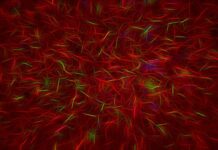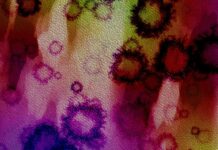Psilocybin therapy is an innovative and promising approach to mental health treatment that utilizes the psychedelic compound psilocybin, found in certain species of mushrooms. Also known as magic mushrooms or shrooms, these fungi have been used for centuries in various cultural and spiritual practices. In recent years, there has been a resurgence of interest in exploring the therapeutic potential of psilocybin, leading to groundbreaking research and clinical trials.
Psilocybin therapy involves the controlled administration of psilocybin in a supportive and therapeutic environment, guided by trained professionals. It is typically used in conjunction with psychotherapy sessions to facilitate deep introspection, emotional processing, and psychological healing. The experience induced by psilocybin is often described as profound, mystical, and transformative, allowing individuals to gain new insights, explore unresolved emotions, and develop a greater sense of self-awareness.
The use of psilocybin in therapeutic settings is rooted in the belief that it can help individuals address a range of mental health conditions, including depression, anxiety, post-traumatic stress disorder (PTSD), addiction, and existential distress. While traditional treatments such as medications and talk therapy have their benefits, they may not always provide long-lasting relief or profound shifts in perspective. Psilocybin therapy aims to fill this gap by offering a potentially transformative experience that can catalyze therapeutic breakthroughs and promote lasting positive changes in mental well-being.
Research on the therapeutic applications of psilocybin has shown promising results. Clinical studies have demonstrated the efficacy of psilocybin therapy in reducing symptoms of treatment-resistant depression, alleviating anxiety and existential distress in patients with life-threatening illnesses, and facilitating significant improvements in psychological well-being. These findings have sparked interest among mental health professionals, researchers, and policymakers, leading to an increased recognition of psilocybin therapy as a legitimate and valuable treatment modality.
The therapeutic benefits of psilocybin can be attributed to its interaction with serotonin receptors in the brain. Psilocybin is a prodrug, meaning it is converted into its active form, psilocin, once ingested. Psilocin binds to serotonin receptors, particularly the 5-HT2A receptor, which is involved in mood regulation, perception, and cognition. This interaction leads to altered states of consciousness, enhanced introspection, and increased emotional openness, all of which can facilitate therapeutic breakthroughs and promote healing.
In a typical psilocybin therapy session, individuals are carefully prepared beforehand, both psychologically and emotionally. They are guided through the experience by trained therapists who provide a safe and supportive environment. The therapy session may involve the use of eye shades and headphones playing soothing music to facilitate introspection and minimize external distractions. The therapists are present throughout the session to offer guidance, support, and integration afterward.
During the psilocybin experience, individuals often report a range of effects, including changes in perception, heightened emotions, altered sense of time, and increased introspection. These effects can vary significantly from person to person and may be influenced by factors such as dosage, set (the individual’s mindset and intentions), and setting (the physical environment). The experience is typically introspective and may bring up deeply rooted emotions, memories, or insights that are explored and processed during the therapy session.
Psilocybin therapy is not a one-size-fits-all approach. Each session is tailored to the individual’s needs, and the number of sessions may vary depending on the condition being treated and the progress made. Integration sessions, which take place after the psilocybin experience, are an essential part of the therapeutic process. These sessions allow individuals to reflect on and integrate the insights gained during the experience into their daily lives, helping to solidify the therapeutic benefits and promote lasting change.
It is worth noting that psilocybin therapy is not without risks or potential side effects. The intensity of the experience, combined with the potential for psychological and emotional breakthroughs, can sometimes be challenging and overwhelming. However, when conducted in a safe and supportive environment with trained professionals, the risks can be mitigated, and the therapeutic benefits can be maximized.
The field of psilocybin therapy is rapidly evolving, with ongoing research and clinical trials exploring its potential in various therapeutic applications. As the scientific and medical communities continue to gain a deeper understanding of psilocybin’s effects and mechanisms of action, regulatory bodies are taking notice. In recent years, there has been a growing acceptance of psilocybin therapy, leading to the relaxation of legal restrictions in certain jurisdictions and paving the way for more widespread access to this promising form of therapy.
Psilocybin therapy holds immense promise as a transformative approach to mental health treatment. Its ability to facilitate profound healing, increase self-awareness, and promote lasting positive changes makes it a compelling option for individuals struggling with mental health conditions that have been resistant to traditional treatments. While more research is needed to fully understand the therapeutic potential and optimize protocols, the growing body of evidence supports the view that psilocybin therapy can play a significant role in the future of mental health care.
Controlled Administration:
Psilocybin therapy involves the controlled administration of psilocybin in a therapeutic setting, ensuring the safety and well-being of individuals undergoing the treatment.
Supportive Environment:
The therapy sessions take place in a supportive and comfortable environment, guided by trained professionals who provide emotional support and guidance throughout the experience.
Integration Sessions:
Integration sessions are an integral part of psilocybin therapy, allowing individuals to reflect on and integrate the insights gained during the experience into their daily lives, promoting lasting change and personal growth.
Altered States of Consciousness:
Psilocybin induces altered states of consciousness, leading to changes in perception, introspection, and emotional openness. These altered states can facilitate therapeutic breakthroughs and promote healing.
Treatment-Resistant Conditions:
Psilocybin therapy shows promise in treating treatment-resistant mental health conditions such as depression, anxiety, post-traumatic stress disorder (PTSD), addiction, and existential distress.
Enhanced Emotional Processing:
Psilocybin therapy can enhance emotional processing and allow individuals to explore unresolved emotions, trauma, or difficult experiences in a safe and supportive environment.
Increased Self-Awareness:
The profound nature of the psilocybin experience can lead to increased self-awareness and introspection, helping individuals gain new insights into their thoughts, emotions, and behaviors.
Spiritual and Existential Exploration:
Psilocybin therapy offers the opportunity for spiritual and existential exploration, allowing individuals to explore questions of meaning, purpose, and their relationship to the world.
Potential Therapeutic Breakthroughs:
The transformative nature of psilocybin therapy can lead to therapeutic breakthroughs, allowing individuals to make significant progress in their mental health journey and overcome longstanding challenges.
Growing Acceptance and Research:
Psilocybin therapy is gaining recognition and acceptance within the scientific and medical communities. Ongoing research and clinical trials are further exploring its therapeutic potential and refining treatment protocols.
Psilocybin therapy has garnered significant attention in recent years, sparking discussions and debates about its potential benefits and risks. Advocates of psilocybin therapy highlight its ability to transcend traditional treatment approaches and offer a unique pathway to healing. They argue that the profound and introspective experiences induced by psilocybin can facilitate personal growth, self-exploration, and emotional healing in ways that traditional therapies often struggle to achieve.
One of the intriguing aspects of psilocybin therapy is its ability to dissolve the boundaries of self and foster a sense of interconnectedness with others and the surrounding world. Many individuals report experiencing a profound sense of unity and connection during psilocybin experiences, which can have lasting impacts on their worldview and relationships. This shift in perspective can promote compassion, empathy, and a deeper understanding of the interdependence of all living beings.
The potential therapeutic benefits of psilocybin therapy extend beyond the treatment of specific mental health conditions. Some proponents suggest that it may have broader applications in personal development, creativity enhancement, and spiritual growth. The introspective nature of the psilocybin experience can unlock insights and foster a deeper understanding of one’s life purpose, values, and personal identity. This exploration of the self can lead to personal transformation and a greater sense of fulfillment and meaning in life.
While psilocybin therapy shows promise, it is essential to acknowledge the potential risks and challenges associated with its use. The intensity of the experience, the potential for difficult emotions and psychological challenges, and the need for a supportive therapeutic context all highlight the importance of proper preparation, guidance, and integration. Safety protocols, thorough screening processes, and the involvement of trained professionals are crucial to ensuring the well-being of individuals undergoing psilocybin therapy.
Another consideration in the realm of psilocybin therapy is the legal and regulatory landscape. The legal status of psilocybin varies across jurisdictions, with some countries and regions decriminalizing or legalizing its use for therapeutic purposes. This evolving legal framework presents both opportunities and challenges for the advancement of psilocybin therapy. Advocacy efforts, scientific research, and public education play important roles in shaping the regulatory landscape and expanding access to this potentially transformative form of therapy.
Psilocybin therapy also raises questions about cultural and historical contexts. The use of psilocybin-containing mushrooms has a rich cultural and historical background, often associated with indigenous spiritual practices and rituals. Some argue for the importance of acknowledging and respecting these cultural traditions, ensuring that the therapeutic use of psilocybin is informed by the wisdom and insights of these ancient practices. Ethical considerations and cultural sensitivity are vital in integrating psilocybin therapy into modern healthcare systems.
The future of psilocybin therapy holds both opportunities and challenges. The continued advancement of research, particularly in controlled clinical settings, is crucial for further understanding the therapeutic potential and mechanisms of action of psilocybin. Rigorous scientific studies are needed to establish standardized protocols, optimize dosing regimens, and identify specific populations that may benefit most from this form of therapy.
As psilocybin therapy gains recognition and acceptance, education and training programs for healthcare professionals will become increasingly important. The integration of psilocybin therapy into mainstream healthcare requires a well-trained workforce that understands the unique considerations, risks, and benefits associated with this treatment modality. The development of guidelines, best practices, and ethical frameworks will ensure that the therapeutic use of psilocybin is conducted responsibly, safely, and with the highest standards of care.
Furthermore, the accessibility and affordability of psilocybin therapy are critical factors to consider. Ensuring equitable access to this form of therapy is essential to prevent it from becoming a privilege available only to a select few. Advocacy for expanded research funding, insurance coverage, and the establishment of accessible treatment centers can help address these concerns and make psilocybin therapy available to a wider population.
In conclusion, psilocybin therapy offers a novel and potentially transformative approach to mental health treatment. Its ability to induce profound and introspective experiences has shown promise in treating various mental health conditions and facilitating personal growth. However, careful consideration of its risks, proper therapeutic context, and adherence to ethical and cultural sensitivities are essential for its safe and responsible integration into healthcare systems. Ongoing research, public education, and the development of guidelines and training programs will pave the way for the future of psilocybin therapy, providing individuals with new possibilities for healing, self-exploration, and personal transformation.


















